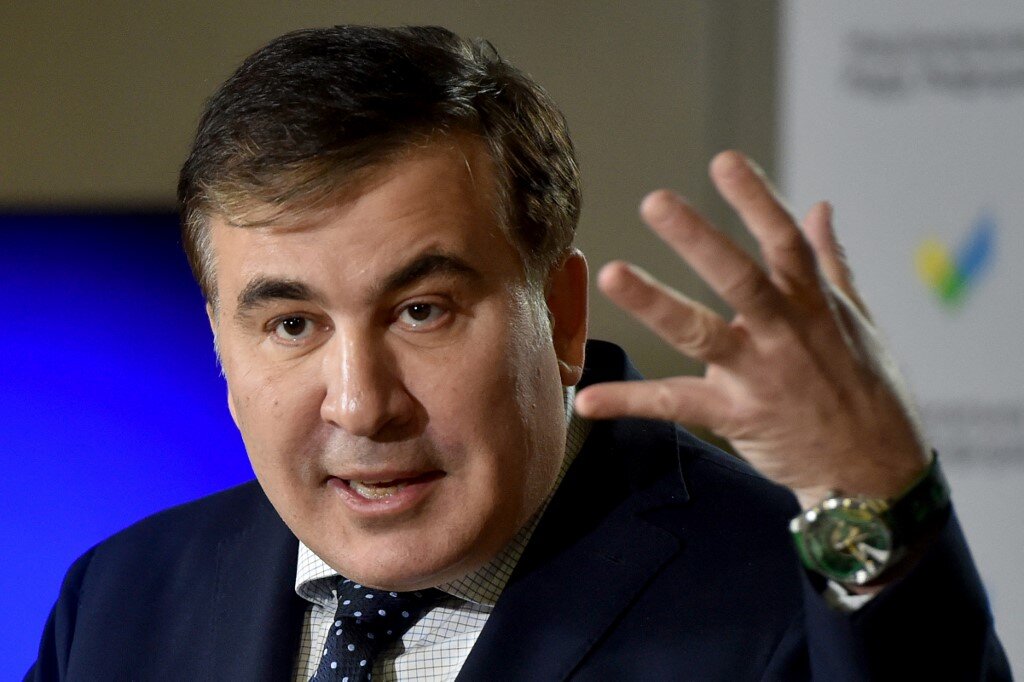He is an extraordinary politician by anyone’s standards. He has been president of Georgia and a regional governor in Ukraine, and a prisoner in both. Currently, Mikheil Saakashvili sits in a Georgian prison based on sentences handed down in 2018 by Georgian courts in his absence.
Saakashvili’s return to Georgia just before the first round of local elections, held on Oct. 2, came as a shock. Saakashvili had been absent from the country for a full eight years. His return was a bold and brave move calculated to mobilize the former president’s supporters and the political party he founded in 2001, the United National Movement. And it did mobilize them. Although the ruling party, Georgian Dream, won the first round of elections according to the official results, the UNP took a solid second place with over 30% of the vote, as compared to Georgian Dream’s 47%. Almost two weeks later the opposition staged Georgia’s largest mass demonstration since the Rose Revolution protests brought Saakashvili to power in 2003.
It is unlikely, however, that Georgia will undergo a repeat of its epic revolution from 19 years ago. Georgian Dream and Georgia’s government are tightly controlled by a former Russian oligarch of Georgian descent, Bidzina Ivanishvili, who earned billions of dollars in Russia before moving to Georgia and renouncing his Russian citizenship. Ivanishvili’s fortune of $5 billion equals roughly one-third of the country’s entire GDP.
Ivanishvili has unabashedly used his fortune to capture and maintain power in Georgia. Prior to the presidential elections held in 2018, the Cartu Foundation, which is controlled by Ivanishvili, promised to pay back the personal debts of 600,000 Georgian citizens, or about 20% of the electorate. Transparency International stated the obvious: the initiative “contains signs of vote-buying and is directed in favor of Salome Zurabishvili.” Voters did, indeed, get the message and Zourabichvili, Ivanishvili’s preferred candidate, from the Georgian Dream party, won the elections.
Zourabichvili went on air to publicly and firmly declare that she “will never pardon” her predecessor. This seemed unusual, to say the least, given that Zourabichvili made her statement the very next day after Saakashvili’s return. But for close observers of Georgian politics with an understanding of who really runs the country, there is little doubt but that the president was fulfilling an instruction from Georgia’s real ruler, Ivanishvili.
Ivanishvili served as prime minister in 2012–2013, but he holds no official post, nor does he need to. Under his de facto rule Georgia has stagnated for the past eight years, successive governments have seemed rudderless, apart from promises to pay personal debts. This is probably one significant factor why the United National Movement remains popular in Georgia despite its leader’s protracted absence from the country. The other is Saakashvili’s lasting legacy as a top reformer, the region’s most successful reformer by far according to the most authoritative international agencies.

A photograph taken on March 19, 2021, shows former Georgian President Mikheil Saakashvili gesturing during a press conference in Kyiv. Georgia’s flamboyant ex-president Mikheil Saakashvili said on Oct. 1, 2021, he had returned from exile despite the threat of arrest, calling on his supporters to take to the streets against the government. (AFP)
In Ukraine, Saakashvili has led the Executive Committee of the presidential National Council on Reforms for the past one-and-a-half years and he has his supporters here.
Former Ukrainian President Leonid Kuchma has issued a public statement calling on Georgia’s government to view Saakashvili “not as its political opponent, but as the architect of unique reforms recognized the world over.”
Yulia Tymoshenko has called for Saakashvili’s release. His friend, the mayor of Ukraine’s western regional center, Lviv, Andriy Sadoviy, has expressed his support repeatedly.
On the international level, both houses of Poland’s parliament have appealed to the Council of Europe and the European Union on Saakashvili’s behalf, whose detention they characterized as “politically motivated.”
David Arakhamia, the head of Ukraine’s ruling parliamentary faction, “Servant of the People,” recorded a video in which he called for Saakashvili’s “immediate release” and soon after his detention President Volodymyr Zelensky stated his job was to return from abroad Ukrainian citizens who are being held against their will.
But doubts have begun to creep in as to Ukraine’s intentions in this situation.
Sadoviy noted that Ukraine’s authorities have been keeping silent on Saakashvili’s arrest, despite his worsening health. Immediately upon being incarcerated Saakashvili had announced a hunger strike. On Oct. 23 Sadoviy wrote on his Facebook page: “Ukraine’s government cannot simply remain silent.” According to Saakashvili’s doctor, Nikoloz Kipshidze, this past week Saakashvili’s health deteriorated and he received a blood transfusion.
On Oct. 30, second-round elections will be held in Georgia. No later than soonest thereafter we should expect Zelensky and Ukraine’s government to deliver on their promise to obtain the release of a citizen — an extraordinary one — of Ukraine.
Ivan Lozowy is a member of the ruling council of Mikheil Saakashvili’s Ukrainian political party, the Movement of New Forces.
